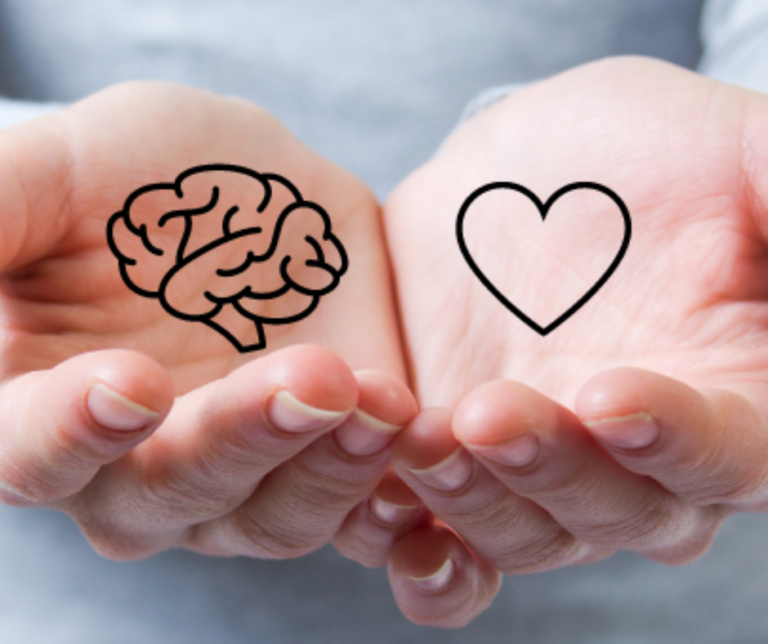How to Improve Sleep for Better Mental Health: A Complete Guide
Meta Description: Struggling with sleep and mental health? Discover science-backed strategies to improve sleep quality, reduce stress, and boost emotional well-being naturally.
Introduction
Do you wake up feeling groggy, mentally foggy, or emotionally drained? You’re not alone. Sleep and mental health are deeply intertwined, and poor sleep can wreak havoc on your mood, memory, and overall well-being.
In today’s fast-paced world, quality sleep is often sacrificed for busy schedules, screen time, and stress. But neglecting your sleep doesn’t just make you tired—it can also increase anxiety, worsen depression, and impair your emotional resilience.
The good news? You can take back control.
This article explores the powerful connection between sleep and mental health, the consequences of sleep deprivation, and proven strategies to help you sleep better and feel better.
The Connection Between Sleep and Mental Health
Sleep isn’t just a period of rest—it’s when your brain repairs, detoxifies, and processes emotions. Here’s how poor sleep impacts your mental well-being:
1. Sleep Affects Emotional Regulation
Lack of sleep reduces your ability to manage stress and regulate emotions. Even one bad night can make you more irritable, anxious, or reactive the next day.
2. Sleep Deprivation Fuels Mental Health Disorders
Chronic sleep deprivation is linked to:
- Anxiety disorders
- Depression
- Bipolar disorder
- ADHD and mood swings
Sleep problems don’t just result from mental health issues—they also contribute to and intensify them.
3. REM Sleep & Emotional Processing
During REM (Rapid Eye Movement) sleep, your brain processes emotional experiences and consolidates memories. Skipping REM sleep disrupts this process, leading to emotional instability and poor memory recall.
Signs You’re Not Getting Quality Sleep
- You struggle to fall asleep or stay asleep
- You wake up frequently during the night
- You feel tired even after 7–8 hours of sleep
- You need caffeine or naps to function
- You experience brain fog or low mood
If these sound familiar, your sleep—and by extension, your mental health—might need attention.
How Much Sleep Do You Really Need?
According to the CDC and National Sleep Foundation, adults need 7–9 hours of quality sleep per night. However, quality matters just as much as quantity.
Interrupted, shallow, or inconsistent sleep can still leave you feeling mentally drained.
How Poor Sleep Impacts Mental Health
1. Increases Anxiety and Worry
Sleep deprivation triggers the amygdala—the brain’s fear center—making you more sensitive to stress and negative emotions.
2. Worsens Depression Symptoms
People with insomnia are 10 times more likely to develop depression. Sleep problems often precede and worsen depressive episodes.
3. Impairs Cognitive Function
Poor sleep leads to:
- Reduced concentration
- Slower decision-making
- Memory issues
- Difficulty focusing on tasks
4. Weakens Resilience
Without sleep, you’re less equipped to handle life’s challenges, leading to emotional burnout, frustration, and decreased self-esteem.
Top Strategies to Improve Sleep for Mental Health
Here are evidence-based tips to enhance sleep and support emotional well-being:
1. Stick to a Consistent Sleep Schedule
Going to bed and waking up at the same time—even on weekends—regulates your circadian rhythm, making it easier to fall asleep and stay asleep.
Tip: Set a bedtime alarm to remind you to wind down.
2. Create a Sleep-Inducing Environment
Your bedroom should signal to your brain that it’s time to rest.
- Keep it cool (60–67°F or 15–19°C)
- Dim or eliminate lights
- Use blackout curtains
- Minimize noise with earplugs or white noise
Reserve your bed for sleep and intimacy only—not work or scrolling.
3. Limit Screen Time Before Bed
Blue light from phones, TVs, and laptops suppresses melatonin, the hormone that signals your brain it’s time to sleep.
Solution: Avoid screens at least 60–90 minutes before bedtime, or use blue light filters.
4. Develop a Wind-Down Routine
A relaxing pre-sleep ritual can tell your brain it’s time to rest. Try:
- Reading a physical book
- Gentle yoga or stretching
- Journaling or gratitude writing
- Listening to calming music or white noise
- A warm shower or bath
5. Avoid Stimulants & Heavy Meals at Night
Limit these in the evening:
- Caffeine (coffee, energy drinks, chocolate) – at least 6 hours before bed
- Alcohol – it may help you sleep faster but disrupts deep sleep
- Heavy or spicy meals – they can cause indigestion and disrupt sleep
6. Get Sunlight in the Morning
Exposure to natural light early in the day helps regulate your sleep-wake cycle (circadian rhythm) and boosts mood by increasing serotonin.
Try: 15–30 minutes of sunlight within an hour of waking up.
7. Exercise (But Not Too Late)
Regular physical activity improves sleep quality and reduces stress. However, intense workouts too close to bedtime can increase alertness.
Best practice: Exercise in the morning or early evening.
8. Manage Stress & Anxiety Before Bed
Stress is a major sleep disruptor. Use these techniques to calm your mind:
a. Meditation or Deep Breathing
Just 5–10 minutes of breathing or guided meditation can significantly reduce cortisol levels and help you relax.
b. Journaling
Write down what’s on your mind to clear mental clutter and ease nighttime overthinking.
c. Progressive Muscle Relaxation (PMR)
Tense and release muscle groups one by one to relax your body and reduce stress.
9. Use Natural Sleep Aids (If Needed)
Some people benefit from gentle, non-habit-forming supplements:
- Melatonin (short-term use)
- Magnesium glycinate
- Chamomile or valerian root tea
- Lavender essential oil
Always consult a healthcare provider before starting supplements.
10. Seek Professional Help When Needed
If sleep problems persist despite lifestyle changes, you might be dealing with:
- Insomnia
- Sleep apnea
- Restless leg syndrome
- Underlying anxiety or depression
A sleep specialist or therapist can help diagnose and treat these conditions.
Mental Health Benefits of Better Sleep
When you prioritize sleep, your brain and emotions thrive. Benefits include:
- Better focus and clarity
- Improved mood and emotional regulation
- Greater stress resilience
- Lower risk of anxiety and depression
- Enhanced creativity and productivity
Morning Habits to Support Better Sleep
Sleep quality isn’t just about what you do at night. Try these morning practices:
- Wake up at the same time daily
- Get sunlight exposure
- Move your body (light stretching, walk, or workout)
- Avoid snoozing multiple times
- Stay hydrated and avoid excessive caffeine
FAQs About Sleep & Mental Health
Q: Can poor sleep really cause mental illness?
Yes. While not the only factor, chronic sleep deprivation increases the risk of mental disorders like anxiety and depression.
Q: How long does it take to fix sleep problems?
Consistency is key. Most people notice improvements within 2–4 weeks of following healthy sleep habits.
Q: Are naps helpful or harmful?
Short naps (20–30 minutes) can boost alertness and mood. Avoid long or late naps, as they can interfere with nighttime sleep.
Conclusion: Prioritize Sleep, Protect Your Mind
Your sleep is not a luxury—it’s a mental health essential. Improving your sleep quality is one of the simplest and most powerful ways to boost your emotional resilience, focus, and happiness.
Whether you’re battling stress, anxiety, or simply trying to feel more mentally clear, start with sleep. The more you honor your body’s need for rest, the better your mind will perform and feel.
Start tonight—your brain will thank you tomorrow.
Would you like the next article to be on:
- “Sleep Hygiene Checklist for Beginners”
- “Nighttime Routines to Calm a Racing Mind”
- “Foods That Help You Sleep Better Naturally”
Or do you have another topic in mind?





